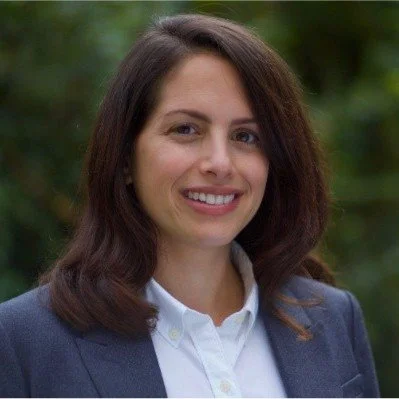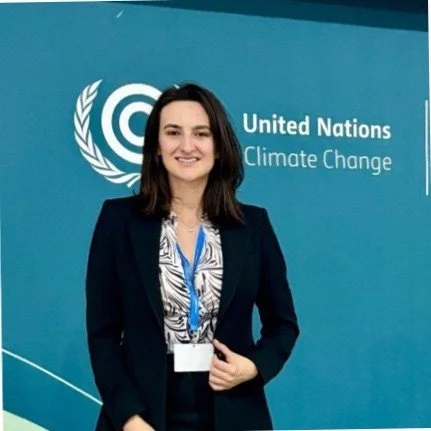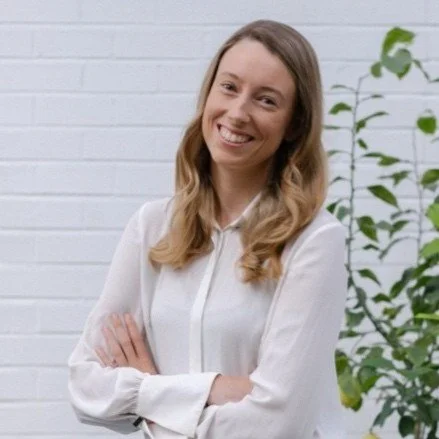Some of our speakers
Agenda
The sessions were recorded and have been made available to all delegates (in-person and virtual). On-demand recordings can be purchased.
Summary
-
Whilst the conference will officially start at 9:45, please do join us for some light breakfast and networking with your peers in the industry.
-
A chance for the virtual audience to meet their hosts for the day and learn more about how the day will unfold online, with networking opportunities galore!
-
A warm welcome from CAA co-founders, Emilien Hoet and Andrew Griffiths with a mindfulness exercise and some scene setting for the day.
-
Join Tamara Somers, Jessica Richmond and Lindsay Ellis for an open, candid discussion on where we are at as a carbon accounting industry, some of the challenges we face, opportunities to scale, and the journey many of us are going through. This discussion hopes to set the tone for the day in framing our collective approach to carbon accounting and how we can enhance our impact.
-
Paul Dickinson will deliver a keynote speech on how we can better use the tools of carbon accounting. A provocation on how we can have more impact in our industry.
-
While many carbon accounting solutions have emerged in recent years, they have all suffered from a reliance on a limited range of available emissions factors (EFs).
The factors that are most commonly used are often system-incomplete and lack reliability, methodological coherence and comparability.
A discussion on the current challenges with EFs and exploration some of the details behind the Carbon Commons project, a solution supported by the Carbon Accounting Alliance.
-
Refresh yourself and have a quick chat with fellow attendees.
-
An interrogation of the impact of Renewable Energy Credits (RECs), Power Purchase Agreements (PPAs) and time-matched RECs, as well as areas where Scope 2 accounting needs reform.
-
We encourage both our virtual and in-person audiences to grab lunch and enjoy some networking!
-
An interactive session to discuss the latest releases of the GHG Protocol, ISO/BSI, SBTi and ISSB/IFRS standards, allowing for both questions and suggestions to be pitched to standards’ representatives. Outputs will be documented and should form part of the wider consultation process.
-
What is the purpose of Scope 3? How do we improve our collective approach: which is working well and what needs reform? Too often carbon accountants fail to distinguish between inventory (aka "attributional") and intervention (aka "consequential") GHG accounting methods – which are appropriate for fundamentally different purposes. For example, practitioners sometimes use inventory accounting to assess how much a mitigation action reduces emissions whereas intervention accounting may be more appropriate. This interactive session will start with provocations from Michael Gillenwater (GHG Management Institute), Madeleine Carnemark (Technical Lead for the Taskforce for Corporate Action Transparency) followed by a lively panel discussion to discuss the wider issues with Scope 3 accounting as well as a practical discussion on inventory vs. intervention accounting.
-
Refresh yourself and have a quick chat with fellow attendees.
-
Delegates will be divided into small groups of up to 10 people to discuss key questions or challenges faced in the carbon accounting industry today. Questions will be determined by popular vote with delegates ahead of the event, but will likely include some of the following:
How can we simplify our advice on the role of removals, beyond value-chain mitigation and decarbonisation to achieve Net Zero?
How can we better incentivise and rate companies' meaningful climate action?
How do we best define market-based accounting (e.g. usage of environmental attribute certificates (EACs)) and what are the priorities for the emerging guidance?
How can we harmonise and improve access to emission factors for greater consistency and comparability?
What challenges are companies facing in applying FLAG guidance, and how could the process be improved?
How can we better align product carbon footprint (PCF) methodologies across and within industries?
How can we improve interoperability between carbon accounting software tools and ensure consistent data flows across platforms?
-
Andrew & Emilien will conclude the day with a summary of the key messages and share some hopes for the future of the industry.
-
We invite you to discuss your learnings with your peers over drinks.
Small group moderators
























